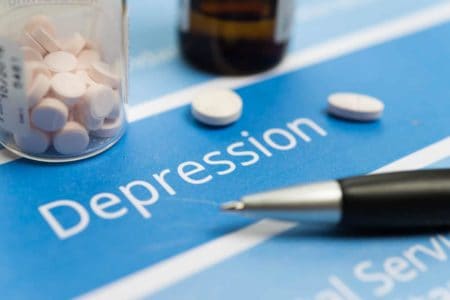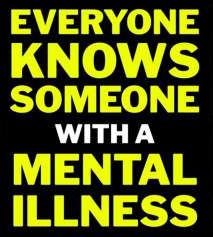What is a mental hospital for depression?
When you think about treating depression symptoms, going to the mental hospital for depression may not be something you think about. For some, this is a critical decision when experiencing severe complications with their symptoms. While hospitalization has helped people with treatment-resistant depression or severe depression, there is a stigma about being hospitalized for depression. Some individuals consider getting admitted in a “depression hospital”, while others are holding off on taking action. There is nothing wrong with being in a stable, safe environment while recovering. On the other hand, some may have concerns about what else they can do for their symptoms if they sense they’re getting worse.
Can you check yourself into a mental hospital for depression?
Most hospitals have procedures and processes in place when treating individuals with mental health concerns. Suppose you’re considering going to a mental hospital for depression. In that case, you can get information about the process and what happens when you’re admitted by contacting the hospital to inquire about their psychiatric treatment. Most hospitals may have a psychiatric unit or wing devoted to such care. Each mental hospital for depression varies as some provide partial hospitalization programs depression treatment or 24-hour supervised care.

Deciding to get admitted to a mental hospital for depression is usually a personal choice, but it may also come as a recommendation from your mental health specialist or doctor. Either way, you are making a commitment toward recovery that is admirable. There are rules and regulations regarding hospitalization for mental health or psychiatric evaluations that allow an individual to seek and commit to treatment voluntarily. A mental health professional can provide details upon request.
Get Help. Get Better. Get Your Life Back.
Searching for Accredited Drug and Alcohol Rehab Centers Near You?
Even if you have failed previously and relapsed, or are in the middle of a difficult crisis, we stand ready to support you. Our trusted behavioral health specialists will not give up on you. When you feel ready or just want someone to speak to about therapy alternatives to change your life call us. Even if we cannot assist you, we will lead you to wherever you can get support. There is no obligation. Call our hotline today.
(844) 597-1011When to go to the hospital for anxiety and depression?
People may not see depression as something a hospital would treat, but it is a severe condition like heart disease requiring special attention when symptoms are problematic or life-threatening. There are several reasons why hospitalization is recommended for individuals who are struggling with depression.
While there may not be a thing such as depression hospitals, many local hospitals provide treatment for depressive symptoms. The treatment provided depends on the patient’s needs and situation. Here are cases where a person with depression could benefit from staying in the hospital:
Self-Harm Or Risk To Others
The most common reason for a mental hospital for depression stay is an individual at risk of harming themselves, suicidal, or being a safety risk to others. Someone may need hospitalization to prevention from committing suicide or violence. Individuals who need to stay in the mental hospital for depression get the support they need to regain control of their lives.
Unable To Care For Self
An individual who is so depressed they cannot carry out daily duties and responsibilities might benefit from hospitalization. People may be unable to take care of themselves for different reasons, such as feeling very tired or needing physical assistance.
Medication Observation
An individual taking medication for depression might need observation from a medical professional when taking a new medication. It is common for a physician to recommend a hospital stay when adjusting patient medications. The patient is supervised closely at the hospital to ensure the medicine works.
Hospital-Only Treatment
An individual may need specialized treatment only available through hospitalization. Whether you need anesthesia for therapy like ECT (electroconvulsive therapy), or any other health-related concern about your depression, you’ll be under the watchful eye of your doctor and learn your prognosis depending on how well your treatment goes.

Get Your Life Back
Find Hope & Recovery. Get Safe Comfortable Detox, Addiction Rehab & Dual Diagnosis High-Quality Care.
Hotline(844) 597-1011Signs that it’s time to visit a mental hospital for depression
You’re thinking about suicide
If you’re thinking about hurting yourself, suicide or death, or actively planning to end your life, it’s crucial to seek immediate help. You might reach out to a suicide prevention hotline or visit the emergency room for mental health support. Speaking with a mental health professional can help with all types of suicidal ideation.
Suicidal ideation can be passive or active. Passive ideation means you’re having thoughts of death or suicide, but you don’t have an intent or will to act on them, and therefore you don’t have a plan to do so. Active suicide ideation means you have a plan.
You’re experiencing new symptoms
- Symptoms of psychosis, such as delusions or hallucinations, which can sometimes happen in more severe depression
- Mania, in the case of bipolar depression
- Severe side effects from antidepressant medications.
First-class Facilities & Amenities
World-class High-Quality Addiction & Mental Health Rehabilitation Treatment
Rehab Centers TourRenowned Addiction Centers. Serene Private Facilities. Inpatient rehab programs vary.
Addiction Helpline(844) 597-1011Proven recovery success experience, backed by a Team w/ History of:
15+
Years of Unified Experience
100s
5-Star Reviews Across Our Centers
10K
Recovery Success Stories Across Our Network
- Low Patient to Therapist Ratio
- Onsite Medical Detox Center
- Comprehensive Dual-Diagnosis Treatment
- Complimentary Family & Alumni Programs
- Coaching, Recovery & Personal Development Events
Hospitalized for Depression
What happens when you’re hospitalized for depression? You’ll be given food, water, and warm blankets. You’ll be asked to complete some paperwork, including forms about your medical history and health insurance. One of the first things that will happen is that a psychiatrist will evaluate you to determine an appropriate treatment plan to meet your specific needs. During your stay, you will most likely participate in individual, group, or family therapy. In addition, you will probably receive one or more psychiatric medicines.
Hospital stays for treating depression tend to be brief due to cost. Here is a list of some necessary items that your friend or loved one can bring with them:
- Slippers and pajamas
- Loose-fitting, comfortable clothes
- Any medications they are currently taking
- Basic toiletries, such as a toothbrush, and toothpaste
- Glasses or contact lenses (plus contact case and solution)
- Several changes of underwear and other undergarments
Anything that might be used to commit harm or suicide isn’t allowed. This includes razors, belts, and shoes with laces. The mental hospital for depression will provide basic amenities like washcloths, towels, and soap.
What are your rights regarding hospitalization for depression?
As a patient, you have the right to learn about your treatment and how it will be provided. You have the right to know the process and procedures for the care you need. You can refuse treatment if you feel uncomfortable or unsafe. You have the right to refuse participation in training sessions or experimental situations with student interns and observers. You have the right to your personal information to remain confidential. Patient rights are outlined through a regulation known as HIPAA or the Health Insurance Portability and Accountability Act.
Understanding your rights as a patient is essential. You’ll also want to review what your insurance will and will not cover. If you don’t have insurance, you may still be entitled to receive care under certain circumstances. Information related to HIPAA is available online, but many hospitals provide information to you before treatment. You can also learn about rules and regulations for patient care in your state.

World-class, Accredited, 5-Star Reviewed, Effective Addiction & Mental Health Programs. Complete Behavioral Health Inpatient Rehab, Detox plus Co-occuring Disorders Therapy.
CALL(844) 597-1011End the Addiction Pain. End the Emotional Rollercoaster. Get Your Life Back. Start Drug, Alcohol & Dual Diagnosis Mental Health Treatment Now. Get Free No-obligation Guidance by Substance Abuse Specialists Who Understand Addiction & Mental Health Recovery & Know How to Help.
What to expect once you’re in a mental hospital for depression?
Come prepared with your medical history
You’ll be asked about your medical and psychiatric history — personal and family — so be prepared by bringing the following:
- Psychiatric medications
- Your medical concerns and any diagnoses
- A complete list of medications, in addition to
- A list of any and all psychiatric medications
- You might have tried in the past, including how long you took them for
- Family history of psychiatric issues, if there are any
Be prepared for the psychiatrist to ask you questions
Once you’re in your session, you can expect that the psychiatrist will ask you the reason you’re coming in to see them. They might ask in a variety of different ways, including:
- “Tell me what you’re here for.”
- “How’re you doing?”
- How can I help you?”
Being asked an open-ended question might make you nervous, especially if you don’t know where to begin or how to start. Take heed in knowing that there’s truly no wrong way to answer and a good psychiatrist will guide you through the interview.
You’ll work towards creating a plan for the future
Since most psychiatrists generally provide medication management, options for treatment will be discussed at the end of your session. A treatment plan may consist of:
- Medication options
- Referrals for psychotherapy
- Level of care needed, for example, if more
- Intensive care is needed to appropriately address your symptoms, options to
- Find an appropriate treatment program will be discussed
- Any recommended labs or procedures such as
- Baseline tests prior to starting medications or tests to rule out any possible
- Medical conditions that may contribute to symptoms
Partial Hospitalization Program Depression
Partial Hospitalization is a structured mental health treatment program that runs for several hours each day, three to five days per week. Clients participate in the scheduled treatment sessions during the day and return home at night. This program is a step down from 24-hour care in a psychiatric hospital setting (inpatient treatment). It can also be used to prevent the need for an inpatient mental hospital for depression stay.
PHP provides a structured program of outpatient psychiatric services as an alternative to inpatient psychiatric care. It’s more intense than the care you get in a doctor’s or therapist’s office. You get this treatment during the day, and you don’t have to stay overnight. Medicare may help you cover partial hospitalization program depression treatment services you get through a mental hospital for depression or a community mental health center.

Experience Transformative Recovery at We Level Up Treatment Centers.
See our authentic success stories. Get inspired. Get the help you deserve.
Start a New Life
Begin with a free call to an addiction & behavioral health treatment advisor. Learn more about our dual-diagnosis programs. The We Level Up Treatment Center Network delivers recovery programs that vary by each treatment facility. Call to learn more.
- Personalized Care
- Caring Accountable Staff
- World-class Amenities
- Licensed & Accredited
- Renowned w/ 100s 5-Star Reviews
We’ll Call You
Rehab for Depression and Substance Use Near Me
Major depressive disorder (MDD) is often accompanied by substance abuse or dependence. The mental health field has long discussed whether these conditions are independently occurring disorders or are overlapping illnesses intertwined by common etiologic and vulnerability factors. The initial presentation of depression can be obscured by the overriding symptoms or side effects of a substance use disorder (SUD).
In the general population, the prevalence of a current substance use disorder in persons with Major depressive disorder (MDD) ranges from 8.5 to 21.4%, with a lifetime prevalence of comorbid SUDs ranging from 27 to 40% [6]. Co-occurring depression has an adverse effect on the course of SUDs. Current depression predicted poorer treatment response and higher rates of relapse.
People who suffer from depression can experience severe sadness that lasts weeks or even months at a time. It’s common for those battling mental illness to also struggle with substance abuse. Sometimes it can be difficult to determine which condition came first. People faced with prolonged periods of profound sadness may reach for drugs or alcohol to ease the pain, feelings, and other symptoms.
However, substance use can actually make depression symptoms more severe. Clinical depression alone increases the risk of accidental injury, suicide, and other forms of self-harm. Add in drugs or alcohol, and the threats to the person’s mental and physical health can be extreme.
To determine the most effective ways to treat depression and substance abuse comorbidity, it’s crucial to first get an accurate assessment of all the symptoms. When the symptoms have been evaluated by a mental health professional, it may be determined that another form of mental condition is present and needs a particular type of treatment.
Detox Treatment
The first step in treatment is medical detox. It will help you navigate the complicated withdrawal process but doesn’t address patterns of thought and behavior contributing to substance abuse. Various treatment approaches and settings can help provide the ongoing support necessary to maintain long-term sobriety after you complete detox.
Cravings are very common during detox and can be challenging to overcome. This often leads to relapse. Constant medical care provided during inpatient treatment and depression rehab help prevent relapse. Clinicians can provide necessary medication and medical expertise to lessen cravings and the emotional effects of alcohol withdrawals.
Psychotherapy
Several different modalities of psychotherapy have been used in the treatment of depression, including:
- Cognitive Behavioral Therapy (CBT) – is an effective treatment that involves changing both the patterns of negative thoughts and the behavioral routines which are affecting the daily life of the depressed person for various forms of depression.
- Dialectical Behavior Therapy – is a comprehensive mental health and substance abuse treatment program whose ultimate goal is to aid patients in their efforts to build a life worth living. The main goal of DBT is to help a person develop what is referred to as a “clear mind.”
- Person-Centered Therapy – is a strategy that allows and encourages clients to understand and resolve their concerns in a safe, supportive environment.
Dual Diagnosis Treatment and Depression Treatment
Drug abuse and mental health disorders often co-occur. In many cases, traumatic experiences can result in a mental health disorder and substance abuse. Dual diagnosis rehabilitation treats both of these issues together. The best approach for the treatment of dual diagnosis is an integrated system. This strategy treats both the substance abuse problem and the mental disorder simultaneously. Regardless of which diagnosis (mental health or substance abuse problem) came first, long-term recovery will depend mainly on the treatment for both disorders done by the same team or provider.
Medication-Assisted Treatments
Medication-Assisted Treatments (MAT) for substance use disorders and mental health disorders are commonly used in conjunction with one another. This includes the use of medications and other medical procedures. During your rehab, the staff from your treatment facility will help you identify what caused your addiction and teach you skills that will help you change your behavior patterns and challenge the negative thoughts that led to your addiction.
If you or a loved one are struggling with long-term drug abuse and a co-occurring mental health condition such as depression, contact one of our helpful treatment specialists today. We Level Up can provide information on dual diagnosis and medical detox programs that may fit your specific needs.

Sources:
[1] NIMH– https://www.mentalhealth.gov/what-to-look-for/mood-disorders/depression
[2] Department of Health & Human Services – https://www.cms.gov/regulations-and-guidance/guidance/transmittals/downloads/r10bp.pdf
[3] Powerful Depression Treatment – 1st Class Treatment Center (welevelupfl.com)


